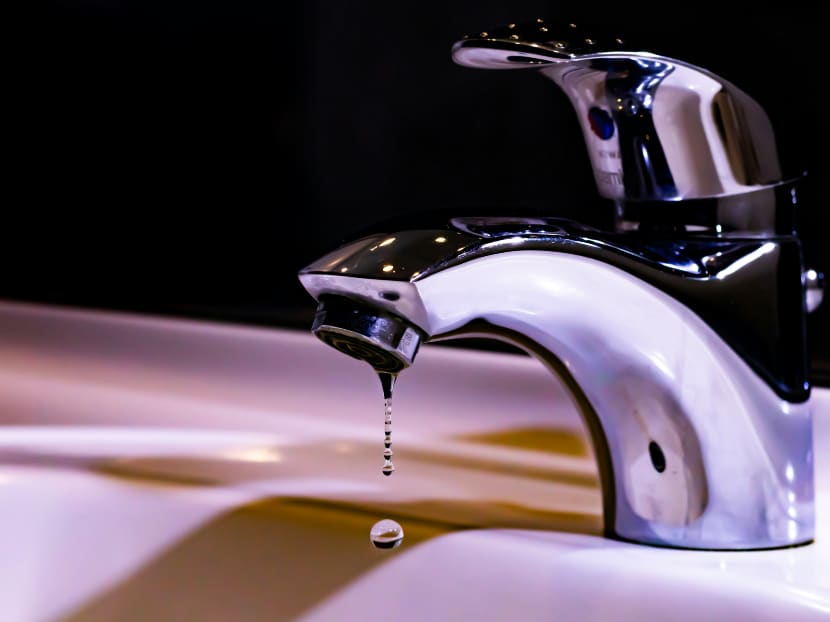Explainer: What do water filtration devices do; are they necessary given the quality of Singapore’s tap water?

SINGAPORE — Suppliers of water filtration devices have once again hit the headlines for making false and misleading claims as to the benefits filtered water can bring.
On Thursday (March 21), the Competition and Consumer Commission of Singapore (CCCS) issued a warning to alkaline water filtration system supplier Purexygen for engaging in unfair sales practices, including making misleading claims that alkaline or filtered water can prevent osteoporosis and diabetes.
Earlier this year, the Advertising Standards Authority of Singapore received complaints against local water and air filtration firm Sterra Singapore, which came under fire for an advertisement that implied that Singapore’s tap water was unsafe for drinking.
Sterra has taken down the online advertisement after national water agency PUB issued advisories to the company asking them to remove advertisements containing “false or misleading claims about tap water”.
PUB is in contact with CCCS to “consider action” that can be taken under the Consumer Protection (Fair Trading) Act, the agency said.
TODAY takes a closer look at what water filtration devices can purportedly do, what experts think of such devices and what consumers should note before purchasing.
WHAT ARE WATER FILTERS FOR?
Water quality expert Kwok Chen Ko, an adjunct lecturer in chemical and life sciences at Singapore Polytechnic and applied sciences at Nanyang Polytechnic, said there are many types of filtration systems.
“In a nutshell, they remove contaminants from water using various methods, such as distillation, reverse osmosis and microfiltration,” said Mr Kwok.
Then there are systems that generate hydrogen water and alkaline water, and systems that both remove and add substances in water.
Alkaline water systems typically incorporate filtration components to remove solids and other things in the water.
Water filtration devices typically range from S$500 to over S$3,000, with some providing the option of choosing between providing alkaline and non-alkaline water.
Proponents of alkaline water with added minerals such as calcium and magnesium believe it can bring health benefits ranging from anti-ageing properties, neutralising acid and promoting digestion.
Brands also offer the option of providing water at pre-set temperatures from cold to hot, and commonly state that the filtered water they provide has a “cleaner” and “purer” taste.
“Filtering water often improves the overall sensory properties, if the filtration system has activated carbon, which takes away the odour (of the water),” said Dr Leong Lai Peng, senior lecturer at the Department of Food Science and Technology at the National University of Singapore (NUS).
“It’s not the taste in terms of sweet, sour, bitter but (tap water) has some sensory properties that people don’t like.”
EXPERTS RESPOND TO HEALTH CLAIMS
Mr Kwok said that water filtration devices may have grown popular as people become more informed about their health, and because of claims that adding alkaline substances into water brings health benefits.
However, the health claims of alkaline and hydrogen water are supported by “limited scientific data” and existing studies involve rather small sample sizes, he added.
While drinking alkaline or filtered water may have no immediate danger to the consumer, Dr Leong said some claims that companies put out may be unfair to consumers.
As to the purported health benefits of alkaline water, she said that there is no evidence that any of such claims is true.
“Everybody knows that our stomach is acidic, there’s a reason why it is acidic when we digest our food. When you drink water it goes into the stomach, why would you want to neutralise it?”
For filtration devices that add minerals which claim to provide nutrients for drinkers, the benefits of such claims depend on a person’s diet, which may already sufficiently meet their nutritional requirements.
“Whether we need the nutrients added via the filter is a question mark, because of course we get all our nutrients and minerals from our food. How much of these do we get from our water?” said Dr Leong.
ARE WATER FILTERS RELEVANT TO SINGAPORE’S HOUSEHOLD?
PUB has emphasised that tap water in Singapore is safe to drink and meets the World Health Organization’s guidelines for drinking water quality.
“Every day, water samples are taken from our distribution network across the island and tested,” said the agency.
PUB said that there is no need for any point-of-use water treatment or filtering devices to further treat the water.
“If they are not kept clean, maintained or replaced regularly, the filters on such devices may become a breeding ground for bacteria.”
Water experts also said that while such water filtration systems are needed in other parts of the world, the quality of water in Singapore makes such devices less relevant here.
Professor Shane Snyder, President’s Chair in Water Technologies at the School of Civil and Environmental Engineering at Nanyang Technological University, said home filtration systems are useful where “safe and reliable” drinking water is not readily available.
For example, consumers have to procure filtration devices before drinking in parts of the world where arsenic concentrations naturally occur in water sources.
In Singapore, the “highly advanced” water treatment network and water quality monitoring system make additional filtration or boiling practices largely unnecessary.
“Quite certainly, boiling water at home before consumption does not add additional safety to Singapore’s already highly treated and vigilantly monitored drinking water. In fact, the use of cheap kettles may deteriorate water quality by introducing various metals into the water consumed,” said Prof Snyder.
The same can be said for water filtration systems, he added, which can “harbour bacteria” if not regularly serviced and are often constructed of plastics of unknown origin, which can “leach substances” back into the water.
Mr Kwok added that while a well designed and built filter can remove microbes in the water, pathogenic microbes may not be found in Singapore’s tap water except for “uncommon occurrences” like a poorly maintained water tank.
While claims made by water filter companies may be genuine, whether these claims are useful to the consumer is “debatable”, he added.
For example, filters that claim to remove lead from water are “probably redundant” here, since levels of lead in tap water are “really low”, said Mr Kwok.
However, he noted that filtered water could benefit a few niches in Singapore households, including immunocompromised individuals who cannot tolerate an excess of certain substances in water, or coffee and tea fans who want “pure water” for their beverage taste.
ADVICE TO CONSUMERS
As to why water filtration devices remain popular, experts said this has to do with the image of filtered water providing a higher quality experience.
“People use water every day, water is essential. Therefore it makes it even more pertinent to consumers that they get the best water available,” said Associate Professor Ang Swee Hoon from NUS Business School.
With a more affluent society, consumers also have higher aspirations and “water is no longer just water”, as many are aware that there are different “grades” of water in the market that claim to be purer or contain various minerals, such as in the bottled water market where brands like Evian exist at a higher price point.
Another reason such devices may remain popular is that people here do not have a habit of drinking water straight from the tap, with many households opting to boil water before drinking, said Assistant Professor Charlene Chen from the marketing division at Nanyang Business School.
“Despite being aware of the water treatment procedures, many individuals don't witness this process firsthand. Employing a filtration device enables people to visualise and affirm this crucial step,” said Asst Prof Chen.
Even as PUB and experts have spoken on the safety of tap water, Assoc Prof Ang said that it is unlikely for water filtration devices to become less popular any time soon, though recent misconduct means consumers will now be more “sceptical and particular” about the brand they choose.
Asst Prof Chen said consumers must maintain a “critical mindset” and scrutinise the information presented, as companies are incentivised to portray their products in a manner that encourages consumers to spend.
Agreeing, Dr Leong from NUS said: “No matter what we buy, whether we buy a water filter or supplements, you have to do your due diligence and check. If somebody claims this filter can do magic, you have to check.
“How much you can check depends on the individual. Some people can’t be bothered to check, but if the water filtration system is a few thousand or hundred dollars, you may want to think about whether it’s worth my time to check if the claim is true or not.”








